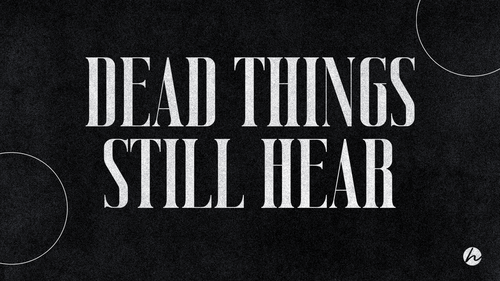
Day 1: Hearing God's Voice in Dry Places
Reading: Ezekiel 37:1-14
Devotional: In the valley of dry bones, God asked Ezekiel a profound question: "Can these bones live?" Like Ezekiel, we often find ourselves in spiritual deserts, surrounded by what seems lifeless and hopeless. Yet even in these barren places, God speaks. Today, reflect on the areas of your life that feel dry or dead. Remember that God's voice can penetrate even the driest bones. His word has the power to breathe life into what seems beyond hope.
Ask yourself: Where do I need to hear God's voice today? Am I listening, even in the midst of my "valley"? Pray for ears to hear and a heart ready to respond to God's life-giving words.
Devotional: In the valley of dry bones, God asked Ezekiel a profound question: "Can these bones live?" Like Ezekiel, we often find ourselves in spiritual deserts, surrounded by what seems lifeless and hopeless. Yet even in these barren places, God speaks. Today, reflect on the areas of your life that feel dry or dead. Remember that God's voice can penetrate even the driest bones. His word has the power to breathe life into what seems beyond hope.
Ask yourself: Where do I need to hear God's voice today? Am I listening, even in the midst of my "valley"? Pray for ears to hear and a heart ready to respond to God's life-giving words.
